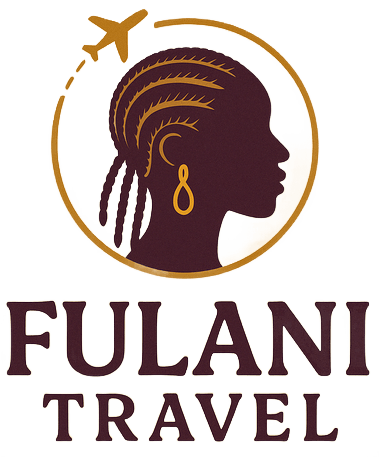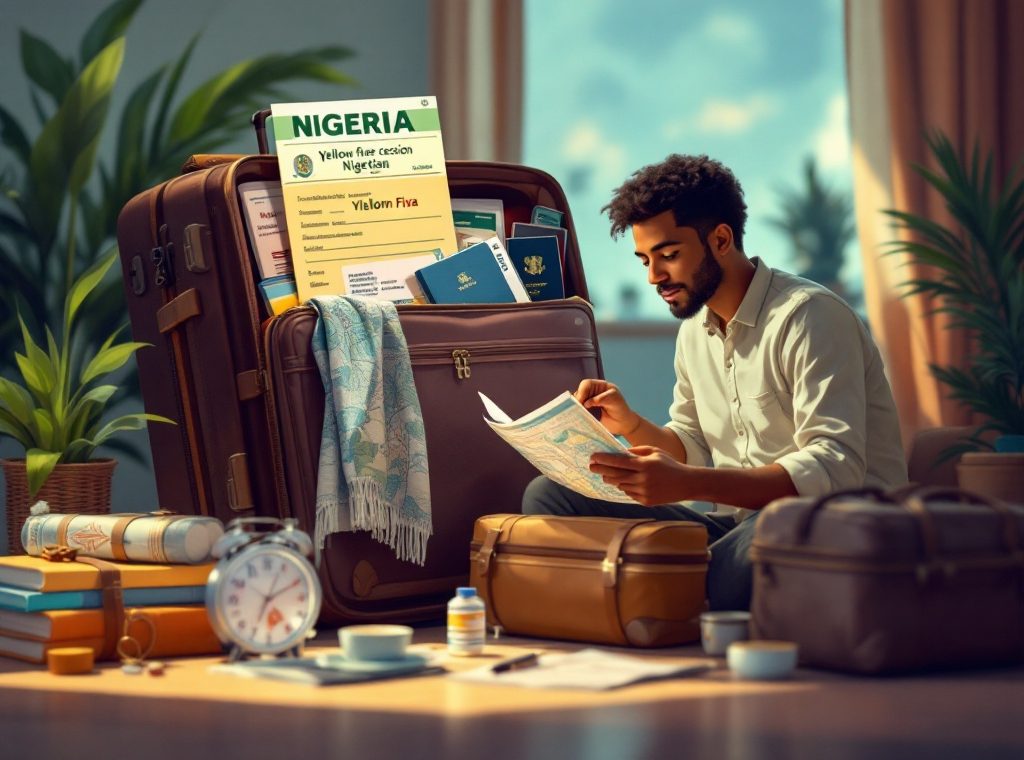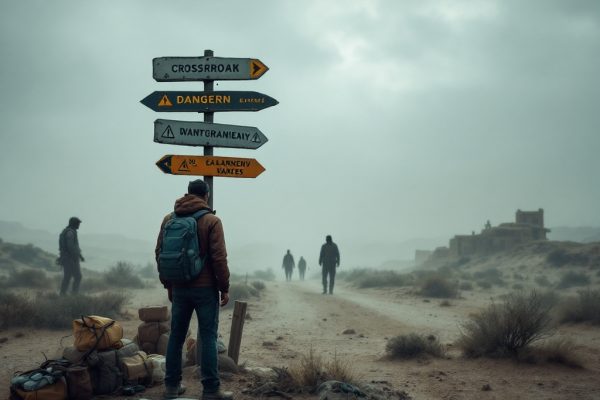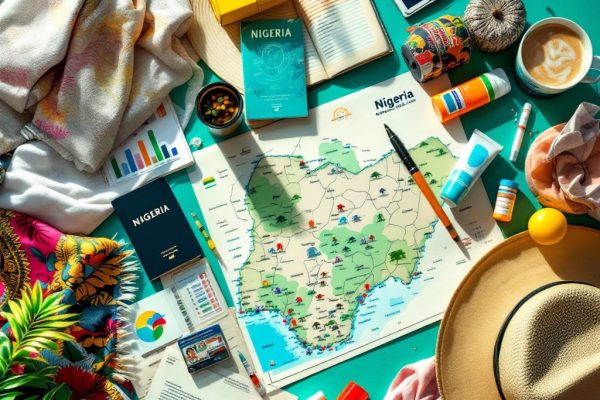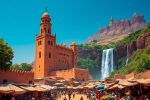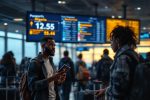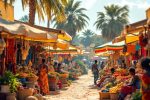Travel Advisory for Nigeria: What You Need to Know Before Visiting
Planning a trip to Nigeria? Ensure a smooth and safe journey by preparing for key requirements. A valid passport (six months beyond your departure), a Nigerian visa obtained beforehand, and crucial vaccinations like yellow fever are essential. This guide details visa application steps, health recommendations, safety precautions for high-risk areas, transportation advice, and cultural insights. Learn about necessary documents, travel insurance, and emergency contacts. Prepare now for a worry-free Nigerian adventure.
Important information
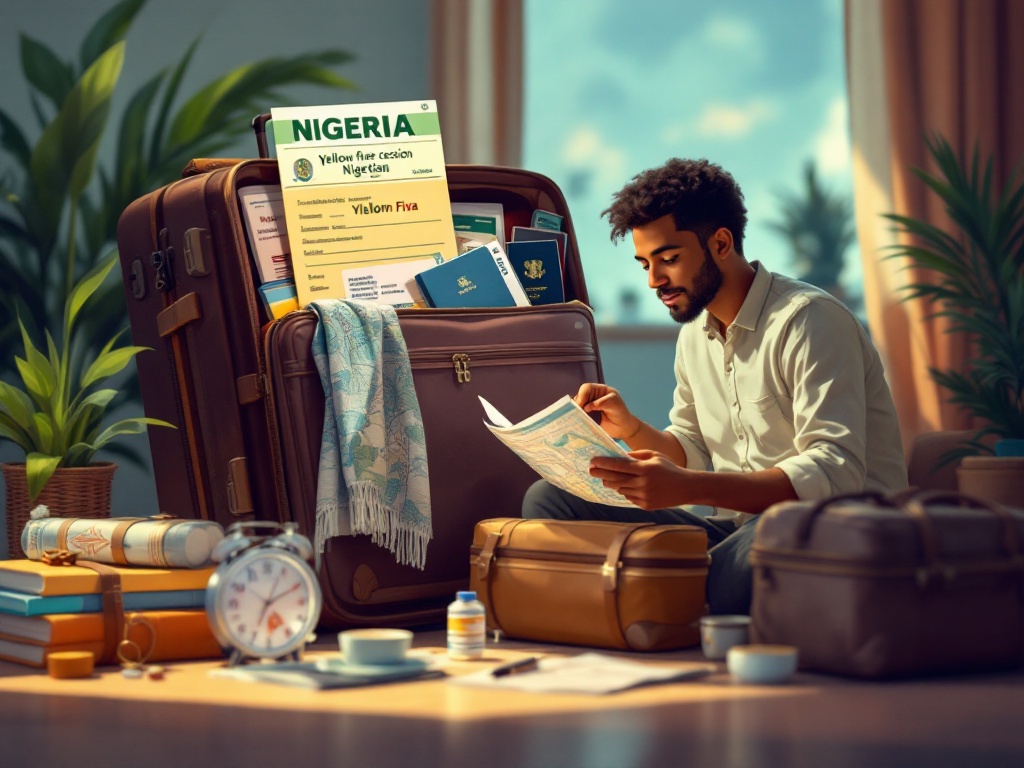
- A Nigerian visa is required for all travelers and must be obtained from an embassy or consulate before arrival, even if you qualify for a Visa on Arrival. Your passport must be valid for at least six months beyond your
Visa Requirements and Entry Protocols
Traveling to Nigeria requires careful preparation of your travel documents. Your passport must be valid for at least six months beyond your intended departure date from Nigeria. A Nigerian visa is essential, and you must obtain it from a Nigerian embassy or consulate before your trip. Failure to present the correct documentation will lead to denied entry into Nigeria. Even if you qualify for a Visa on Arrival, securing pre-approval is mandatory. For comprehensive information regarding visa and passport requirements, contacting the Nigerian embassy or consulate in your country before your travel date is strongly recommended.
Nigerian Visa Application Process
1A visa is required to visit Nigeria. Obtain yours from the nearest Nigerian embassy or consulate.
2The application process involves completing the required forms and gathering supporting documents, including a valid passport and proof of accommodation.
3An interview might be necessary.
4Visa fees and processing times vary.
5Indonesian citizens can apply online or in person at the embassy. Fees range from $100 to $200, and processing typically takes one to two weeks.
Visa on Arrival: Pre-Approval and Documentation
A Nigerian visa is required for entry, so it’s essential to secure it in advance. Applications must be submitted to the Nigerian embassy or consulate before your trip. Ensure your visa is approved before departure.
Required Documentation for Entry
Traveling to Nigeria? Ensure you have the required documents. Your passport must be valid for at least six months beyond your arrival date, and you need a Nigerian visa. In some cases, a pre-approved Visa on Arrival document is also necessary. Without these, entry will be denied.
For Indonesian Travelers
Specifically, Indonesian travelers require a tourist visa, obtainable online or from a Nigerian embassy.
Visa Application Requirements
- Passport valid for at least six months after arrival,
- Completed visa application form,
- Passport photo,
- Proof of accommodation,
- Proof of sufficient funds,
- Return ticket.
Gathering these documents beforehand will ensure smooth travels.
Health Recommendations and Vaccinations
Planning a trip to Nigeria? You’ll need a yellow fever vaccination at least ten days beforehand. Several other vaccinations are recommended.
Recommended Vaccinations
- Hepatitis A and B,
- Typhoid,
- Meningitis.
Other Vaccinations
Depending on your itinerary, cholera and malaria vaccinations might also be necessary. Consult your doctor at least four weeks prior to departure for personalized advice.
1Staying Healthy in Nigeria
While medical care is readily available in major cities, it can be limited in rural areas. To stay healthy, drink bottled water, wash your hands frequently, and avoid street food. Travel health insurance with international coverage is strongly recommended.
Yellow Fever Vaccination: Mandatory Requirements
Planning a trip to Nigeria? Don’t forget a crucial step: yellow fever vaccination. For full protection, get vaccinated at least ten days prior to departure. You’ll need to show proof of this with your International Certificate of Vaccination or Prophylaxis (ICVP).
Other Recommended Vaccines: Diphtheria, Polio, Cholera
Before traveling to Nigeria, consult your doctor about vaccinations for diphtheria, polio, and cholera to ensure your health and safety. They can provide personalized advice based on your individual needs.
Health Insurance and Medical Evacuation Coverage
Review your health insurance policy before traveling to Nigeria to understand its coverage of medical care and evacuations. If your current plan’s medical evacuation coverage isn’t sufficient, consider a supplemental policy for added peace of mind.
Avoiding Contaminated Water and Food
Safeguard your health while traveling by following these precautions:
- Drink only bottled or boiled water, avoiding tap water, ice, and drinks from street vendors to prevent waterborne illnesses.
- Choose well-cooked meals and avoid raw or undercooked dishes to minimize the risk of foodborne diseases.
- Wash your hands frequently, especially before meals, to further reduce the risk of illness.
These simple steps can help ensure a safe and enjoyable trip.
Travel Insurance and Warnings
Travel insurance is essential for any trip, protecting you from unforeseen issues like medical emergencies, cancellations, or lost luggage. Comprehensive coverage is crucial, especially considering the potentially high cost of medical care abroad. A good policy will cover these expenses, including emergency evacuations. Trip interruption insurance safeguards your finances if unexpected events disrupt your travel plans. Lost luggage coverage helps replace essential items, acting as a safety net for your belongings. Some policies even offer liability coverage, protecting you in case of accidents. Before purchasing any policy, carefully review the details, including coverage limits and exclusions.
Why is Travel Insurance important?
- Covers medical emergencies, including evacuations.
- Protects against trip cancellations and interruptions.
- Safeguards against lost or damaged luggage.
- May offer liability coverage in case of accidents.
Before you buy
Carefully review policy details, including coverage limits and exclusions. Consulting resources like the FCDO provides valuable travel advice and ensures your trip is safe and your investment protected.
1Check FCDO travel advisories for Nigeria
Consult these advisories before and during your trip for essential safety and health information.
2Follow FCDO advice
Ignoring FCDO advice could invalidate your insurance.
3Stay informed and take precautions
This ensures a safe and secure trip, protecting you and your travel investment.
Importance of Comprehensive Travel Insurance
Travel insurance protects you from unexpected problems like medical emergencies, trip cancellations, or lost luggage. It acts as a safety net for your travels. Medical care can be costly in Nigeria, so coverage for medical expenses, including emergency evacuation, is essential. Comprehensive insurance also protects against trip disruptions caused by political instability or natural disasters. Lost or stolen baggage is another concern, making baggage coverage important for your peace of mind. Here’s why travel insurance is a must-have for your trip to Nigeria:
Medical Emergencies
Medical care in Nigeria can be expensive. Travel insurance covers medical expenses, including emergency evacuation, providing financial security.
Trip Cancellations/Interruptions
Unexpected events can disrupt your trip. Travel insurance protects you financially if you need to cancel or interrupt your trip due to unforeseen circumstances.
Lost/Stolen Baggage
Losing your luggage can be a stressful experience. Travel insurance provides coverage for lost or stolen baggage, offering peace of mind.
Political Instability/Natural Disasters
Nigeria can experience political instability or natural disasters. Travel insurance can provide coverage for trip disruptions caused by these events.
Travel Health Notices and Warnings
Staying healthy while traveling in Nigeria requires vigilance. The Nigeria Federal Ministry of Health and the US Centers for Disease Control and Prevention offer crucial travel advisories on current health risks and outbreaks, including a surge in yellow fever cases and ongoing diphtheria outbreaks. Vaccination is essential, particularly for diseases like polio and cholera. Travelers should also be aware of the transmission risks associated with chikungunya and measles. Stay informed and protect your health.
1Consult official resources. Refer to the Nigeria Federal Ministry of Health and the US Centers for Disease Control and Prevention for the latest health advisories and outbreak information.
2Vaccinate. Ensure your vaccinations, especially for polio, cholera, and yellow fever, are up-to-date.
3Be aware of other risks. Understand the transmission risks associated with diseases like chikungunya, diphtheria, and measles.
Safety and Security Concerns
1Northern and northeastern Nigeria present elevated risks, including terrorism, kidnapping, and increased urban crime, especially armed robbery. Travelers should exercise extreme caution in these areas.
2Staying safe involves practical steps. Avoid displaying valuables, maintain situational awareness, and refrain from walking alone at night. These precautions significantly mitigate risks.
3Additionally, avoid large gatherings and demonstrations, as they can become volatile. Registering with your embassy or consulate upon arrival and keeping copies of important documents separate from the originals enhances personal safety.
4Monitor local news for updates on safety and security to inform your decisions. Vigilance is key to a safe trip.
Areas with Increased Risk
Northeastern Nigeria carries a high risk of terrorism and kidnapping, especially in:
- Borno,
- Yobe,
- Kogi, and
- northern Adamawa states.
Extreme caution is crucial for travelers in these areas.
Kidnapping is a significant threat in:
- Bauchi,
- Gombe,
- Kaduna,
- Kano,
- Katsina,
- Sokoto, and
- Zamfara.
Crime and armed gangs present dangers in:
- Abia,
- Anambra,
- Bayelsa,
- Delta,
- Enugu,
- Imo, and
- Rivers states.
While Port Harcourt is generally safer, increased vigilance is recommended in these areas.
Crime Prevention Strategies
Exercise vigilance, especially in crowded areas.
Opt for safe and reputable lodgings.
Protect yourself by being discreet with valuable items.
Nigeria struggles with a high rate of violent crime.
Personal Security Tips for Travelers
1Be mindful of your surroundings and avoid displaying expensive items like jewelry or electronics.
2Familiarize yourself with local customs and laws before your trip.
3Secure your hotel room and valuables by locking the door.
4Carry copies of important documents, keeping the originals in a safe place.
5Consider the benefits of registering with a travel program.
Regional Risks and Travel Restrictions
1Nigeria poses significant safety risks, especially concerning terrorism and kidnapping. Be aware of these heightened risks before traveling to Nigeria.
2The Foreign, Commonwealth & Development Office (FCDO) advises against all travel to Borno, Yobe, Kogi, and northern Adamawa states. These areas have increased risks of terrorism and kidnapping.
3If travel to these high-risk areas is unavoidable, maintain heightened vigilance. Stay updated on local news and potential demonstrations to ensure your safety.
4Certain regions within Borno, Yobe, Kogi, and northern Adamawa states experience even greater dangers. These include increased risks of violence, kidnapping, and civil unrest.
5Be particularly aware of potential threats such as inter-communal clashes and armed attacks. Understanding these risks is crucial for personal safety in these regions.
States to Avoid Due to Terrorism and Kidnapping
Traveling in Nigeria requires increased vigilance due to security risks. Northern states, including Borno, Yobe, Kogi, and northern Adamawa, pose significant risks due to terrorism and kidnapping. Similar threats are present in Bauchi, Gombe, Kaduna, Kano, Katsina, Sokoto, and Zamfara, necessitating extreme caution. Southern Nigeria also presents dangers, with elevated crime rates and the presence of armed gangs in Abia, Anambra, Bayelsa, Delta, Enugu, Imo, and Rivers states. While Port Harcourt may be perceived as relatively safer within Rivers State, maintaining vigilance remains essential.
Northern Nigeria
- Borno, Yobe, Kogi, and northern Adamawa: High risk of terrorism and kidnapping.
- Bauchi, Gombe, Kaduna, Kano, Katsina, Sokoto, and Zamfara: Significant security threats requiring caution.
Southern Nigeria
- Abia, Anambra, Bayelsa, Delta, Enugu, Imo, and Rivers states: Increased crime and armed gang activity.
- Port Harcourt (Rivers State): Requires vigilance despite being perceived as relatively safer.
Monitoring Local News and Demonstrations
Stay informed about local news in Nigeria, paying close attention to reports of demonstrations. Protests can cause travel disruptions and may present safety risks. Check for updates before and during your trip.
Transportation and Road Safety
Traveling in Nigeria requires careful planning due to challenging road conditions and traffic management issues, which contribute to a high accident rate. Avoid driving after dark and always wear your seatbelt. Public transportation is available but often overcrowded, posing potential safety and security risks. Consider using reputable taxi services or hiring a private driver for safer travel. Avoid overcrowded vehicles and motorcycles. For air travel, Nigeria’s main international airports are Murtala Muhammed International Airport (LOS) in Lagos and Nnamdi Azikiwe International Airport (ABV) in Abuja. However, exercise caution when traveling to and from these airports. Pre-arranged transportation is recommended for your safety.
Road Conditions and Driving Precautions
Navigating Nigeria’s roads presents unique challenges due to their often poor conditions. Inadequate maintenance and traffic management contribute to these difficulties. For your safety, consider alternatives to public transportation, which can be risky. If driving, prioritize safety by always wearing your seatbelt, keeping windows closed, and avoiding nighttime travel. Be aware of potential encounters with officials concerning traffic violations due to prevalent corruption.If public transport is unavoidable, opt for official taxis or reputable services. Avoid overcrowded vehicles and motorcycles. Prioritize your safety due to the genuine threats of accidents and roadside banditry. Pedestrians should use sidewalks and exercise caution in traffic. Never drive after dark. An International Driving Permit is essential for anyone planning to drive in Nigeria.
Safety Precautions for Driving in Nigeria
- Always wear your seatbelt.
- Keep windows closed.
- Avoid nighttime travel.
- Be mindful of potential encounters with officials regarding traffic violations.
- Obtain an International Driving Permit before driving.
Public Transportation Safety in Nigeria
- If possible, choose alternatives to public transport.
- If using public transport, opt for official taxis or reputable services.
- Avoid overcrowded vehicles and motorcycles.
- Pedestrians should use sidewalks and remain vigilant about traffic.
Public Transportation: Safety Concerns
Navigating Nigeria’s public transportation system can be dangerous due to crime and inadequate regulations. Whenever possible, opt for reputable taxi services or pre-booked transportation through trusted providers. Prioritizing your safety is key. Consider these safety tips for transportation in Nigeria:
- Utilize reputable taxi services or pre-booked transportation whenever possible.
- If using public transport, remain vigilant about your surroundings.
- Avoid displaying expensive jewelry or electronics.
- Travel during daylight hours when possible.
- Keep your belongings secure and within sight at all times.
Airports and Travel: Murtala Muhammed and Nnamdi Azikiwe
Nigeria’s primary international airports, Lagos’ Murtala Muhammed (LOS) and Abuja’s Nnamdi Azikiwe (ABV), prioritize security. Early arrival is recommended to accommodate thorough security checks, ensuring both passenger safety and efficient airport operations. Therefore, plan extra time for check-in and security procedures.
Weather and Climate Considerations
Nigeria has two distinct seasons: a dry season and a rainy season. The dry season, from November to March, offers lower humidity and cooler temperatures. The rainy season, from April to October, brings high humidity, heavy downpours, and a heightened risk of floods.
Dry Season (November – March)
lower humidity, cooler temperatures
Rainy Season (April – October)
high humidity, heavy downpours, heightened risk of floods
Flooding is a significant threat during the rainy season, particularly in coastal and lowland regions. Travelers should monitor weather forecasts, avoid flood-prone areas, and anticipate potential travel disruptions impacting roads and infrastructure.
Dry Season vs. Rainy Season: What to Expect
Nigeria has two main seasons: dry and wet. The dry season, from November to March, offers warmer temperatures, perfect for outdoor activities. The wet season, lasting from April to October, brings heavy rainfall, especially in coastal areas. Travelers visiting during this time should pack appropriate gear, such as umbrellas, raincoats, and quick-drying clothing. A sturdy travel umbrella and a waterproof jacket are particularly advisable.
Flooding and Weather-Related Risks
Traveling in Nigeria during the rainy season (April to October) requires awareness of potential flooding and its impact on travel. Impassable roads can make reaching some areas difficult, and floodwaters themselves create safety hazards. To minimize disruptions, monitor weather forecasts closely and avoid low-lying regions. Anticipate potential travel delays and book flexible tickets whenever possible. Packing extra supplies is also a good idea.
1Monitor weather forecasts and avoid low-lying areas.
2Anticipate travel delays and book flexible tickets.
3Pack extra supplies.
Navigating Local Laws and Culture
When traveling in Nigeria, familiarize yourself with local laws and cultural norms. Drug offenses carry severe penalties, including imprisonment. Public displays of affection, particularly for 2SLGBTQI+ individuals, can be problematic. In some northern states governed by Sharia law, same-sex relationships are prohibited and can result in legal repercussions.
Dressing modestly and acting respectfully demonstrates cultural sensitivity. While neat casual attire is acceptable in cities, modest clothing is recommended when visiting religious sites or rural areas. Refrain from photographing military or police installations, as this is strictly forbidden.
Nigeria’s religious landscape is diverse, primarily comprising Christian and Muslim faiths. Respecting local traditions is essential. Tipping is customary in restaurants and hotels, typically 5% to 10% of the bill. It’s crucial to remember that same-sex relationships are illegal in certain regions, requiring extra caution from 2SLGBTQI+ travelers.
1Legal and Cultural Norms: Familiarize yourself with local laws and cultural norms. Drug offenses carry severe penalties, including imprisonment. Public displays of affection, especially for 2SLGBTQI+ individuals, can be problematic. In some northern states governed by Sharia law, same-sex relationships are prohibited and can result in legal repercussions.
2Dress Code: Dressing modestly and respectfully demonstrates cultural sensitivity. Neat casual attire is acceptable in cities, but modest clothing is recommended for religious sites or rural areas.
3Photography Restrictions: Refrain from photographing military or police installations, as this is strictly forbidden.
4Religious Respect: Nigeria’s religious landscape is diverse, primarily Christian and Muslim. Respecting local traditions is essential.
5Tipping Practices: Tipping is customary in restaurants and hotels, typically 5% to 10% of the bill.
62SLGBTQI+ Travelers’ Caution: Same-sex relationships are illegal in certain regions, requiring extra caution from 2SLGBTQI+ travelers.
Legal Differences and Regulations
Nigeria’s legal system is a blend of English common law, customary law, and Islamic law (primarily in the north). Understanding these legal traditions is crucial for anyone operating within the country. Thorough research into regulations specific to your activities, such as business practices or importing goods, is highly recommended. Penalties for legal infractions can be severe and may differ significantly from those in your home country. Consulting a Nigerian lawyer is always advisable when in doubt.
Religious Practices and Cultural Diversity
Nigeria’s religious landscape is a vibrant tapestry woven with Islam and Christianity as primary threads. Indigenous faiths, particularly among the Yoruba, Igbo, and Hausa communities, add rich cultural depth.When exploring Nigeria, dressing modestly, especially at religious sites, shows respect. Public displays of affection are generally discouraged, so observing local customs is wise.Asking before taking photos demonstrates respect. Learning basic greetings in Yoruba, Igbo, or Hausa enhances interactions and shows cultural appreciation.
2SLGBTQI+ Rights and Sharia Law
The acronym 2SLGBTQI+ represents a diverse community of individuals with various sexual orientations and gender identities. 2SLGBTQI+ stands for: two-spirit, lesbian, gay, bisexual, transgender, queer, intersex, and the plus sign (+) includes all other gender identities and sexual orientations not specifically listed. Here’s a breakdown of each term:
Two-Spirit
This term is specific to Indigenous peoples, encompassing both gender and sexual identity.
Lesbian, Gay, and Bisexual
These terms describe sexual orientations.
Transgender
This term relates to gender identity.
Queer
This is a broader term, often encompassing those who don’t identify with other labels.
Intersex
This term refers to individuals whose sex characteristics may not fit typical male/female definitions.
Plus Sign (+)
This includes all other gender identities and sexual orientations not specifically listed.
Health Facilities and Emergency Services
Accessing healthcare in Nigeria, especially in rural areas, can be challenging. Many hospitals have limited resources, equipment, and essential medicines. Upfront cash payments are often required, and emergency services can be unreliable. For serious medical conditions, traveling to major cities like Lagos or Abuja may be necessary for better treatment, though returning home for some care might still be needed. Be cautious with local blood transfusions, as safety standards can vary. In emergencies, dial 112 for ambulance, police, and fire services. For complex cases, consider Lagos University Teaching Hospital or National Hospital Abuja.
Challenges
- limited resources and equipment,
- shortage of essential medicines,
- upfront cash payments often required,
- unreliable emergency services,
- varying safety standards for blood transfusions.
Recommendations
- For serious conditions, consider travel to Lagos or Abuja,
- exercise caution with local blood transfusions,
- in emergencies, dial 112,
- for complex cases, consider Lagos University Teaching Hospital or National Hospital Abuja.
Access to Medical Facilities
Nigeria’s healthcare system presents a mixed picture. Urban centers often have well-equipped facilities, while rural areas frequently lack essential resources and trained personnel. This disparity creates significant healthcare challenges. Many hospitals require upfront cash payments, posing a financial barrier to necessary care. Moreover, emergency services are often unreliable, so advance planning is essential.
1Research healthcare options. Before traveling to Nigeria, thoroughly research local healthcare options, including hospitals and clinics.
2Develop an emergency plan. Create a detailed plan for medical emergencies, considering potential scenarios and available resources.
3Consider medical evacuation insurance. For serious health issues, consider medical evacuation insurance to ensure prompt and appropriate care in case of need.
Taking these precautions is vital for your well-being in Nigeria.
Emergency Contacts and Consular Services
In Nigeria, dial 112 or 119 in case of an emergency. If you require medical attention, visit the closest hospital. Your local consulate can provide further assistance.
